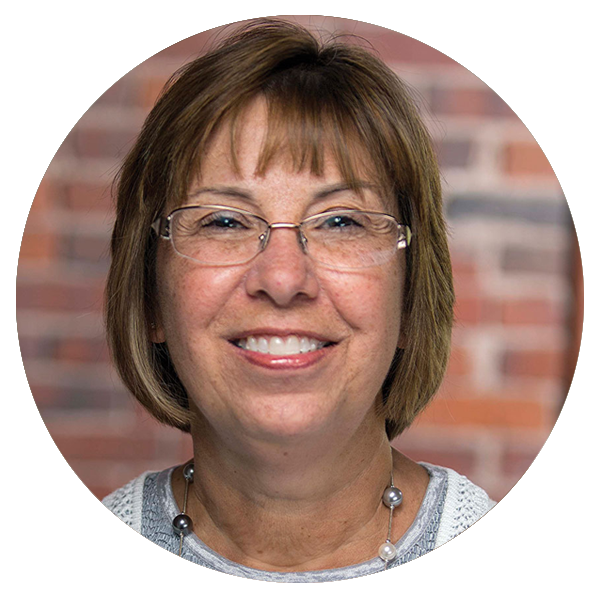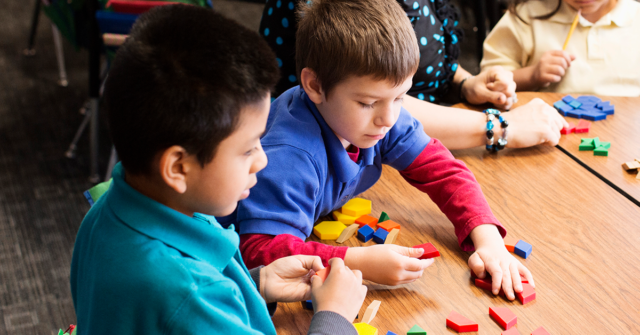
Welcome to The Dispatch, a Heinemann podcast series. Over the next several weeks, we'll hear from Heinemann thought leaders as they reflect on the work they do in schools across the country and discuss, from their perspective, the most pressing issues in education today. Today we'll hear Heinemann math author Sue O'Connell talk about the importance of positive math identities for both students and teachers.
Transcript
Brett Whitmarsh:
You've had a whole day of PD. Today, you're coming kind of fresh after working with a number of teachers throughout the day. As you sort of work through your day and you talk to people, what are those issues in education right now that your brain is just kind of chewing on? When you're in the drive in your car over here after a day of PD, what are those issues that keep you thinking?
Sue O’Connell:
There's multiple issues that keep me thinking.
Brett:
I'm sure.
Sue:
One, I think recently that has really been on my mind is this idea of, we focus so much on math content and pedagogy. But now so much of it is thinking about math dispositions for students, how do we develop that positive math identity?
How do we build students who are confident and curious? And what can we do and not lose that focus on depth of understanding, and really teaching the mathematics effectively? But at the same time, how do we do that and build that positive feeling in mathematics classrooms?
And I think that's both for students and for teachers. Because we feel that, I feel, in working predominantly with elementary teachers. I feel their anxiety related to teaching mathematics in many cases, I feel like they need more math joy in their classrooms. That would be really nice to have tasks that, they can feel that they're effectively teaching mathematics, but feel that joy while they're doing it.
Brett:
Say a little bit more about that. What are the entry points to help bring a teacher along to find that math joy, to help them find their own math identity, and then extend that math identity to students?
Sue:
I think they have to find joyful jumping-off points to teach the mathematics. I find context to be one of the biggest ones. Because we learned mathematics it was, let's put an equation on the board and learn how to solve it.
But I find when we start with, instead of that equation, with a problem, then you get that curiosity on the part of students. And when students are curious and they're engaged, then the teacher feeds off of that, and they're more excited and energized as they're teaching.
So it could be context through word problems. It could be context through putting some real data up, rather than a kind of hokey, textbooky problem that we see all the time. It could be, one thing we've seen a lot lately is the children's literature piece. Read a story that really captures students' interests, that kind of captivates them and pulls them into the story, and then taking that and moving into the math.
And I think it builds that positive feeling and that curiosity in students. But teachers feed off of it, and that energy. And they'll come back saying, that was a great lesson. And it's because it feels different when we start with something engaging versus, here's a worksheet. Or, here are some equations we're going to solve.
Brett:
And that energy that you described, that's what we're all striving for. We're all striving for that from our students, we're striving it from our teachers. That's what we're all aiming for. I love that.
Sue:
And so much of the lessons we used to do, that we were used to when we were students in the math classroom, weren't engaging, didn't give you any energy. Anyone that's ever gone in and observed classrooms, when the teacher passes out a worksheet it's like it sucks the energy out of the classroom.
Brett:
It's just gone, yeah.
Sue:
It's gone. And yet, there are other things they can do that really get the kids excited. And that's what we want to capitalize on.
Brett:
Absolutely. Well, speaking of things that get you excited, a little shift in question here. What are some of the things that you're reading right now? What's on your bookshelf that you're reading through?
Sue:
Well, I'd love to say that I have all kinds of fun things that I'm reading. The bottom line is, I'm so busy with a lot of what I'm doing professionally that I tend to have boring things that I'm reading to most people.
Like, I'll look up some research, or I'll pull a book on math education, any of the latest books that are out. Of course, things like Building Thinking Classrooms. Or, let's look at what the buzz is going around, and kind of take a look at those.
I do, I have resorted to books on tape in my car. Because then I can get in my, I like mysteries, I like historical fiction. And then I can kind of relax and wind down while I'm traveling, and here's some of what I really enjoy.
Brett:
That's great. Yeah. No, big audiobook fan here, so you'll get no debate from me on that.
Let's go to this. When you look across the spectrum of education today, what's giving you hope?
Sue:
I think the biggest thing giving me hope is my interaction with teachers. And it may not be that everyone is where they want to be. And in fact, most of them don't feel like they're where they want to be. But their drive to get there really gives me hope.
Teachers love ideas, suggestions, a different way of trying something. I just find so much positive feedback from my conversations with teachers. And just, that gives me hope that we'll keep enhancing what we're doing, we'll keep making it better for students, just because there's that drive to do it.
Brett:
Yeah. Well, and that swings back to what you were saying at the start about math identity. When they have that hope, their identity gets more buoyed, and it gets stronger through that.
Sue:
Yeah, yeah. I mean we've seen all of this, that math dispositions impact math achievement, which then, math achievement impacts positive math dispositions. It's like one feeds off the other. And that's true with students, and also with teachers. I think the more successful they feel with the lesson, the more positive they're feeling about teaching mathematics, which makes them more successful with the next lesson.
So we just have to keep building on that, and making sure teachers and students have positive experiences in the math classroom.
Edie:
Thank you for tuning in today. For more information and a full transcript, please visit blog.heinemann.com.
You can access a recording of Sue's event, Enhancing Your K-5 Math Summer Program: Boost Engagement and Target Critical Skills for Student Success, here.

Susan O’Connell has decades of experience supporting teachers in making sense of mathematics and effectively shifting how they teach. As a former elementary teacher, reading specialist, and math coach, Sue knows what it’s like in the classroom and her background is evident throughout her work as she unpacks best practices in a clear, practical, and upbeat way.
Sue is the lead author of the new Math by the Book series, a K-5 resource connecting math and children's literature.
K-5 resource connecting math and children's literature.
She is also the lead author of Math in Practice, a grade-by-grade K-5 professional learning resource. She is also coauthor of the bestselling Putting the Practices Into Action, Mastering the Basic Math Facts in Addition and Subtraction, and Mastering the Basic Math Facts in Multiplication and Division. She served as editor of Heinemann’s popular Math Process Standards series and also wrote the bestselling Now I Get It.
Sue is a nationally known speaker and education consultant who directs Quality Teacher Development, an organization committed to providing outstanding math professional development for schools and districts across the country.
Watch an introductory Math in Practice webinar, hosted by Sue.
Click here to watch Sue talk about the links between reading and math.
Connect with Sue on Twitter: @SueOConnellMath


